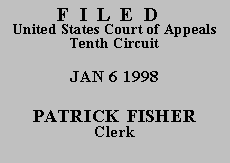

Ricky A. Wriston filed this pro se civil rights action pursuant to 42 U.S.C. § 1983 against a party who had filed a tort suit against him in state court, that party's attorney, and the judge who had entered judgment against Wriston in that action. The district court summarily dismissed the civil rights action pursuant to 28 U.S.C. § 1915(e)(2)(B) because the complaint failed to state a claim for relief and was frivolous and malicious.
Essentially, Wriston argues, without factual support, that because the Kansas statute of limitations barred the state tort action, the three defendants knowingly conspired under color of state law to violate his constitutional rights by causing a judgment to enter against him and by garnishing his prison funds to satisfy the judgment. On appeal, Wriston also argues that the summary dismissal is evidence of the district court judge's bias and prejudice against prisoner litigants. We agree with the district court that the action fails to state a claim and that it is frivolous. The action is founded on "clearly baseless" factual contentions and is "based on an indisputably meritless legal theory." See Neitzke v. Williams, 490 U.S. 319, 327 (1989); Schlicher v. Thomas, 111 F.3d 777, 779 (10th Cir. 1997). In addition, Wriston's action is subject to dismissal under 28 U.S.C. § 1915(e)(2)(B)(iii) as it seeks compensatory and punitive damages against a state court judge.
Accordingly, we AFFIRM. Because this appeal is frivolous and fails to state a claim under 28 U.S.C. § 1915(e)(2)(B)(i) and (ii), it constitutes an "occasion" under 28 U.S.C. § 1915(g).
ENTERED FOR THE COURT
Stephen H. Anderson
Circuit Judge
*.This order and judgment is not binding precedent, except under the doctrines of law of the case, res judicata, and collateral estoppel. The court generally disfavors the citation of orders and judgments; nevertheless, an order and judgment may be cited under the terms and conditions of 10th Cir. R. 36.3.